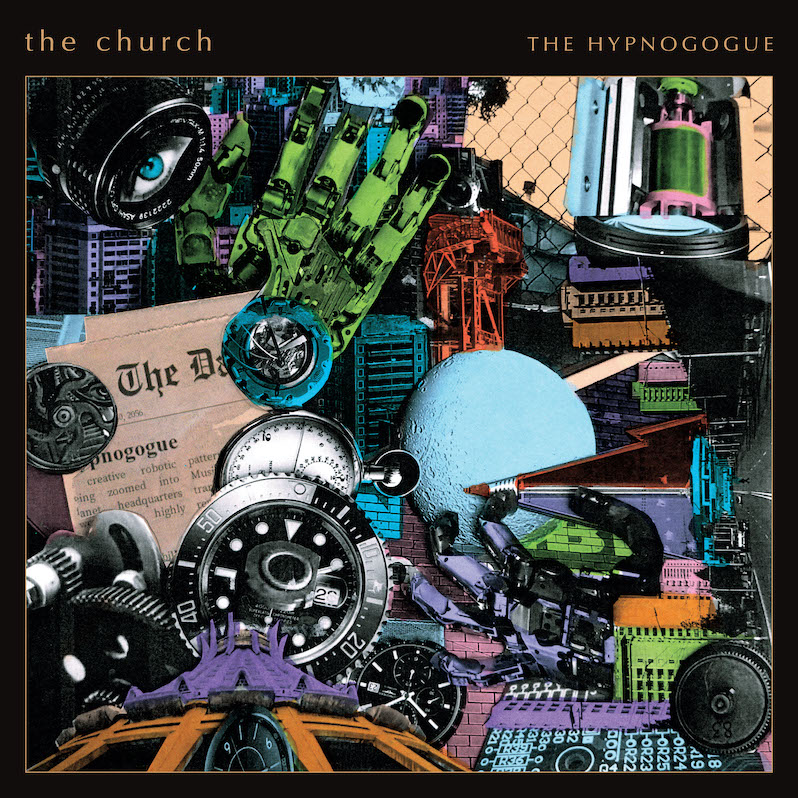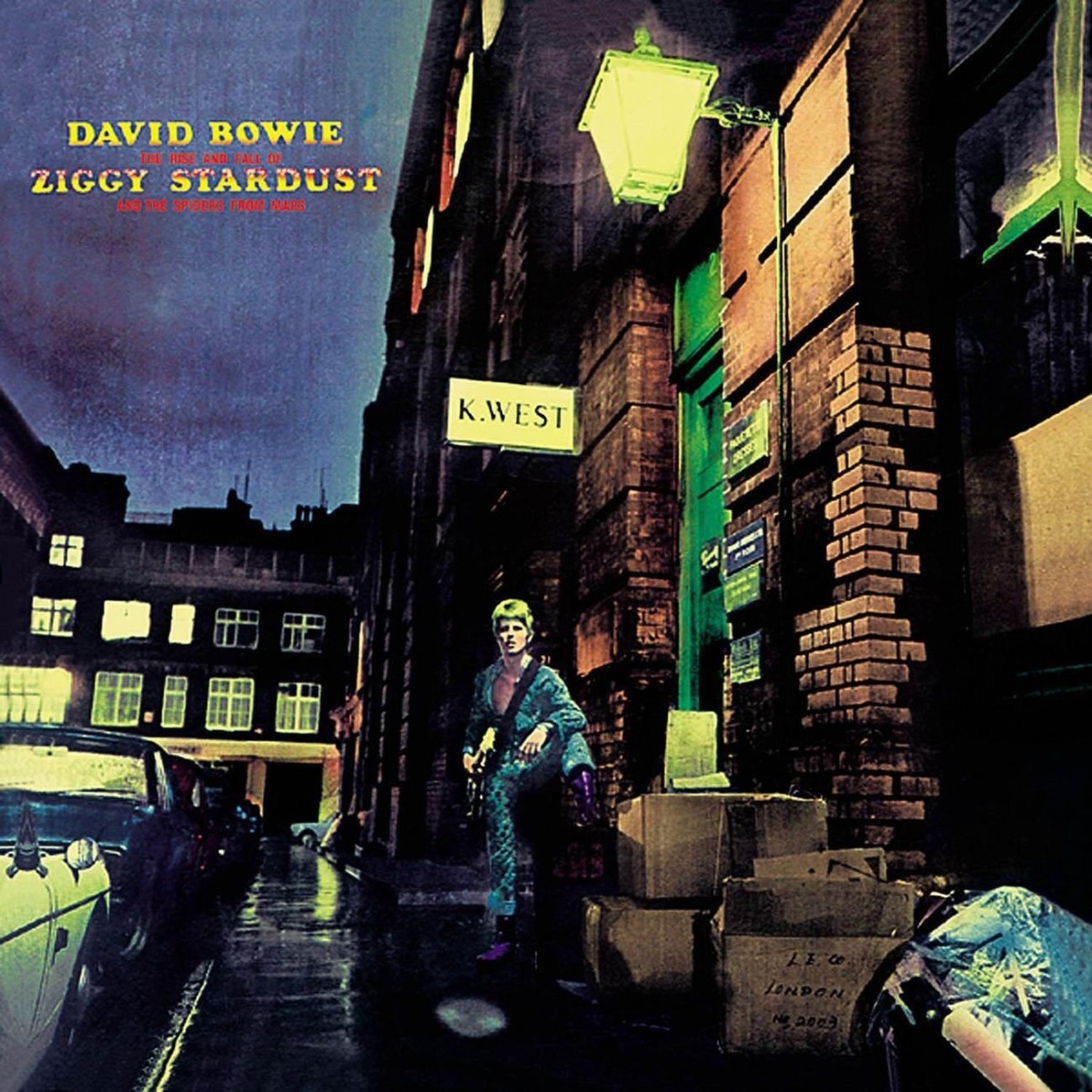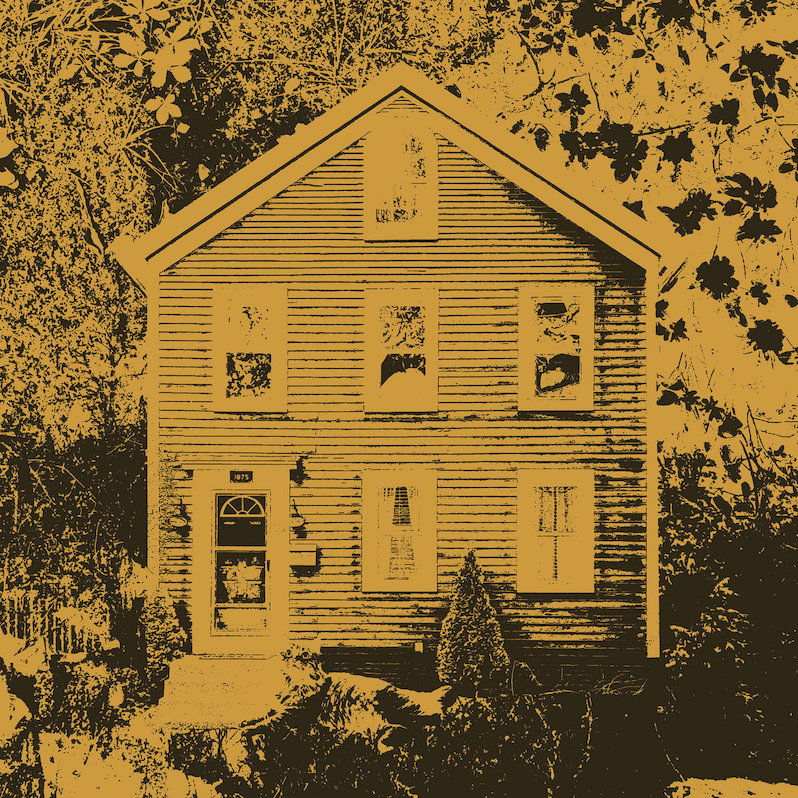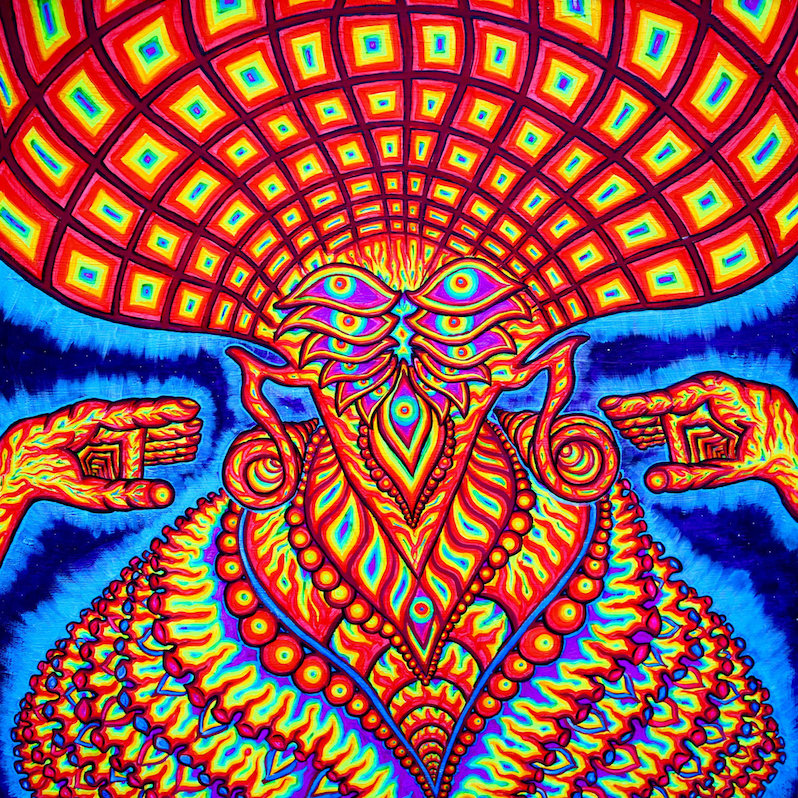The Church : The Hypnogogue

The Church have honed their craft for over 40 years now, trading in a specific guitar-centric rock coupled with a sheen of dynamic psychedelia. They’ve left behind any semblance of being a straightforward band and exist instead as a venerated institution, 25 albums deep and still embracing experimentation as they delve into a full-throated prog rock concept album. Perhaps inadvertently designed as a means to solidify their legendary status, or a genuine projection of an earnest narrative, it’s nothing if not on brand aesthetically—an immersive, noir-like cacophony that is pure and sumptuous. The Hypnogogue is also some of their finest work, connecting neither audiences of old nor new to any distinct path, merely making art that embraces its own existence in its own time.
Time as a place and function doesn’t tie much into the narrative of the album, but its theming and atmosphere are vital, and effectively communicated from start to finish. This environment feels urgent, moody, bleeding out of the same headspace as ’70s sci-fi luminaries like Philip K Dick and Samuel Delany, with themes that touch on the obviously alien, but simultaneously comment on our reality with sage like delegation. There’s no denying that the album owes in some aspect to Bowie; “Ascendance” channels The Rise and Fall of Ziggy Stardust and The Spiders From Mars in its inspired grandiosity, with kernels of layered cosmic glee. The recording, tactile and full, is a soundscape of driven melancholy ending in glitchy, spaced out humming. This ’70s inspired prog connection isn’t so narrow to simply reference the aesthetics of yore. It’s instead equally as infatuated with ambience and landscapes of chamber pop harmonies, with strong alternating vocal performances like on “C’est La Vie,” which revels in symmetrical guitar harmonies nestled under a reverb of psychedelia.
Steve Kilbey’s lilt is still breathy and cool, but there’s an arresting quality to it. When laid bare on “I Think I Knew,” one of the highlights here and one of the band’s most stunning songs overall, there’s a joyful sadness to his voice. It’s a paradox in performance that is mirrored in the song’s recurring motifs and striated chord progressions, each one choking back a listless echo or preening, weepy strum that is engineered with timeless precision. Kilbey’s own bass during the song is a solemn rhythm, lingering in spaces that are soon filled by a rich piano. The same piano that makes “Flickering Lights” elevates itself from its negative space, doing so much with so little.
Each instrument group is fixated on synergy through this album, yet each element possesses a desperate tone at times, grappling in conflict against central melodies, playing out of the order of the rest, yet never letting the composition fall to any true sense of disarray that isn’t entirely planned or controlled. It’s best exemplified on the title track, which shows how deep and intensive the recording for the album was.
The Hypnogogue sees The Church conjuring forth an evocative, cosmic prog concept album that sees them cast an almost impenetrable, classical, yet distinctly modernized album. Its gravity is not within the drama of its narrative, but rather instead in its fidelity to its craft, seeded with long stretches of layered space and glimmering progressions.
Label: Communicating Vessels
Year: 2023
Similar Albums:




